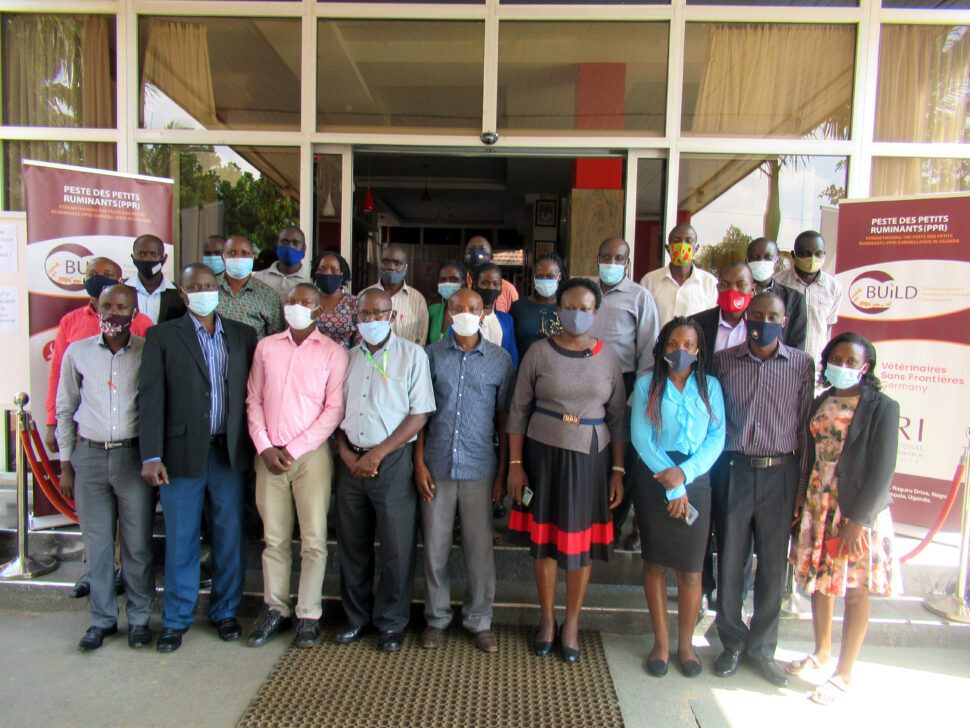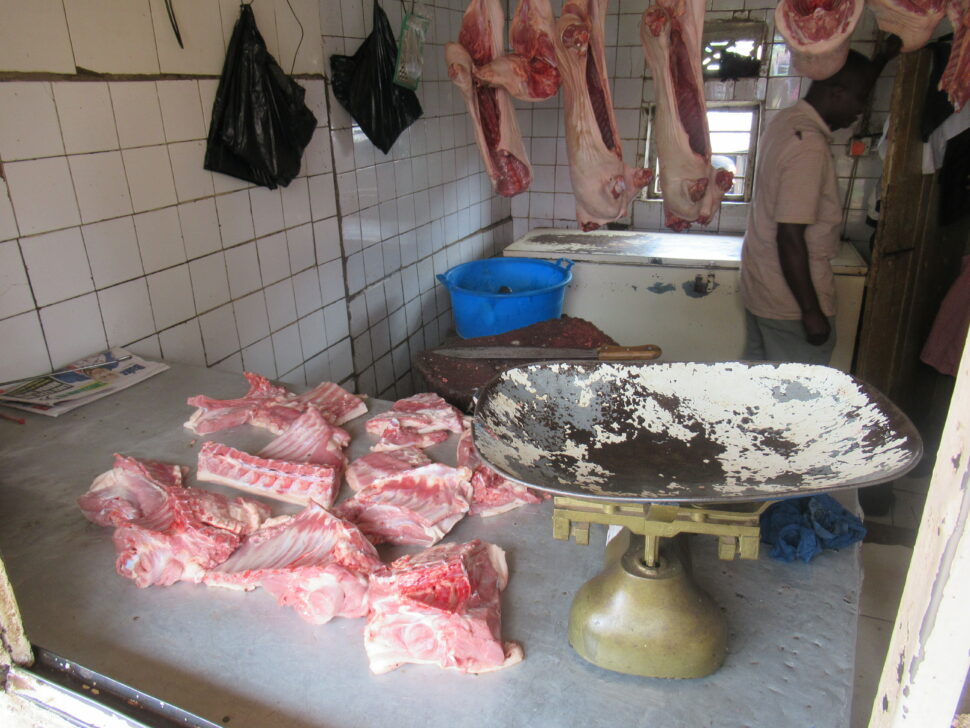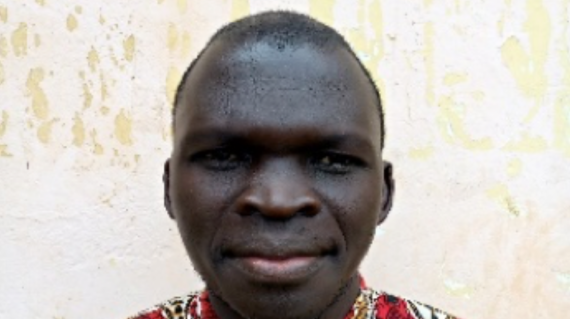Boosting Uganda’s Investments in Livestock Development
The project goal is to improve livestock productivity and marketing by enhancing the human and institutional capacity in livestock health surveillance and livestock health and management.

ILRI, is implementing a BMZ funded project titled: Boosting Uganda’s Investment in Livestock Development (BUILD Program) for a period of 60 months between 1st January 2019 and 30th November 2023. The project goal is to improve livestock productivity and marketing by enhancing the human and institutional capacity in livestock health surveillance and livestock health and management. The project has four components: controlling of PPR, control of Rift Valley Fever, reduction of risk of antimicrobial resistance along the poultry value chain and Veterinary Public Health from point of slaughter. The project’s main focus is to build the capacity of different stakeholders along the targeted value chains to support the establishment of alternative disease surveillance systems and AMR control/reduction and behavioral change for improved food safety. Although the COVID-19 pandemic disrupted field work in the last quarter of 2020, key milestones were achieved as follows:
PPR Component
i) facilitated the review, updating and approval of the National PPR Control Strategy document in liaison with the National PPR Control Steering Committee. The strategy progressively contributes to the control and eradication PPR in Uganda by 2030 while supporting the control of other small ruminant diseases and strengthening veterinary services; and ii) completed desk review consultancy on animal health systems and coordination mechanisms to support the development of alternative disease control and surveillance/reporting strategies.
AMR Component
i) Completed mapping of the AMR stakeholders along the poultry value chain from Wakiso and Soroti districts that shall benefit from the capacity building training on AMR prevention and control, ii) completed one AMR- Knowledge Attitude and Practice (KAPS) Assessment consultancy aimed at establishing a baseline that would guide the design of AMR prevention and control measures in the target districts.
Rift Valley Fever Component
i) Supported the line ministry to carry out suspected RFV outbreak Investigations and sample the collection for laboratory analysis and ii) initiated the development of awareness and communication materials development that will be used to increase awareness of RVF amongst the target communities. These materials have not been published due to need for ratification by ILRI’s communication team.
Veterinary Public Health Component
i) completed one baseline survey consultancy on knowledge, attitude and practice on veterinary public health to guide the development of training modules and behavioral change communication packages for capacity building of meat handlers from point of slaughter to retail joints along the pork value chain; ii) developed nuggets/nudges for change in human behaviors and practices for meat handlers, in collaboration with 17 Triggers and ILRI and iii) completed meat handlers and slaughter facility mapping for planning of training activities. During the baseline activity, data was collected from a total of 614 respondents segregated as follows: 189 abattoir workers, 78 meat transporters, 310 meat sellers and 37 key informants.

The earlier the better
Dr Wabwire Barasa Dennis is a senior veterinary officer with the Ministry of Agriculture, Animal Industries and Fisheries based at Rupa Sub-county in Uganda. He has worked in the livestock sector for ten years. He faces several challenges in livestock interventions, especially due to poor preparedness and delayed responses to livestock disease outbreaks, often leading to livestock heard losses. He took part in VSF Germany’s Participatory Disease Surveillance (PDS) trainings and had this to say regarding his experience:
“I learned a lot from the PDS trainings that were organized by VSF Germany under the BUILD Program that they are implementing in Uganda in partnership with ILRI. This includes the application of the PDS, the tools used in PDS, what you need before carrying out the PDs (i.e. a checklist, understanding of the community in terms of their cultural norms, leadership and how to make entry into the community). The training has helped me a lot in carrying out livestock disease surveillance. It is now easier for me to demonstrate to the livestock owners how to recognize common diseases, how to report, control and prevent them. I am going to use PDS in the planning on how, where, why and when to do the intervention e.g. for the case of vaccination I shall advocate for risk-based vaccination instead of mass vaccination which we used to apply, I am going to communicate with the community to identify their problems and also work with them in carrying out the intervention.”

As Technical Project Manager, Joshua Waiswa is responsible for the implementation of the BUILD project in Uganda.
Dr. Joshua Waiswa has been part of the team since 2019.
“I am motivated above all by the vision of ToGeV in Uganda and the desire to make a positive and lasting difference in the lives of
the communities involved. The thought that I can offer a solution to someone’s problem motivates me every day.”
